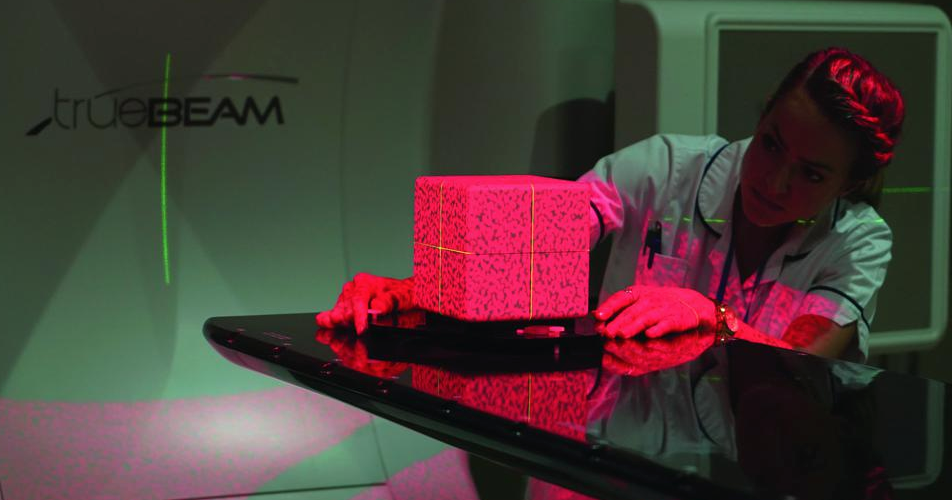Raigmore, Inverness (NHS Highland) becomes first NHS centre in UK to offer tattoo-less radiotherapy to public patients

6 November 2019. Raigmore, Inverness (NHS Highland) has become the First NHS Centre in the UK to offer tattooless Radiotherapy to public patients and join the already well-established private tattooless network of 12 GenesisCare sites throughout the UK.
Prior to the offering, the department conducted independent studies/audits on the technology and found AlignRT to be quicker and more accurate than traditional tattoo-based setup methods, this is supported by other peer-reviewed published data[1].
“Patient positioning has become less invasive, and quicker, and so the time spent delivering the more complex plans including VMAT and DIBH has therefore been reduced. We are very proud as a department to be able to offer our patients both DIBH and tattooless breast radiotherapy with AlignRT,” says Suzanne Coupland, Advanced Imaging Lead Radiographer, Radiotherapy Department at Raigmore Hospital.
Patient, Dawn Rankin, was pleased to be offered an alternative to radiotherapy tattoos.
“I think it’s wonderful to be offered tattooless treatment if you are choosing to have a tattoo it should be your choice, this is for medical reasons which means it’s a reminder of that time. Tattoos are permanent so why tattoo people if it could be done another way?” She asks.
Until recently, permanent tattoos or skin marks were requirements in the delivery of radiation therapy. While the marks helped the accuracy of treatment delivery, patients were left with permanent reminders of their experience. For some, these reminders pose a significant psychosocial challenge, compounding the issues of physical changes to their body. This is especially relevant given that alternatives to these marks are now available.
In a recent study, 138 members of the Young Survival Coalition (YSC) who received breast cancer radiotherapy with tattoos or marks were surveyed to gain insight into their response to this treatment. Founded in 1998, YSC’s mission is to help women under 40 face the critical issues that accompany a breast cancer diagnosis.
Some key findings in the study were:
- 70% had negative feelings about this involuntary body modification
- 78% of patients would choose a treatment which avoided tattoos and/or marks
- 45 miles is the average additional distance patients are willing to travel to a center that is tattooless/markless
- You can see more about this study here.
Vision RT CEO, Norman Smith congratulated the team on their dedication to giving more patients access to tattoo less treatment. ”After extensive research and speaking with patients about their feelings about tattoos, we are excited to see more patients having access to the option of accurate, markerless treatment. We congratulate Raigmore on this outstanding achievement.”
#End
Reference studies:
1 Herron et al. (2018) Surface Guided Radiation Therapy as a Replacement for Patient Marks in Treatment of Breast Cancer. International Journal of Radiation Oncology • Biology • Physics. 102 (3):e492-e493.